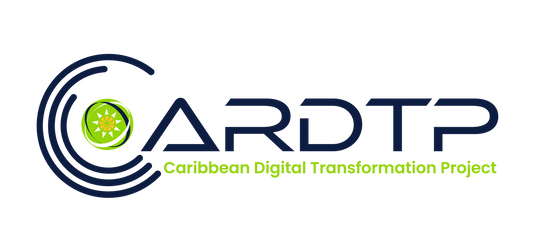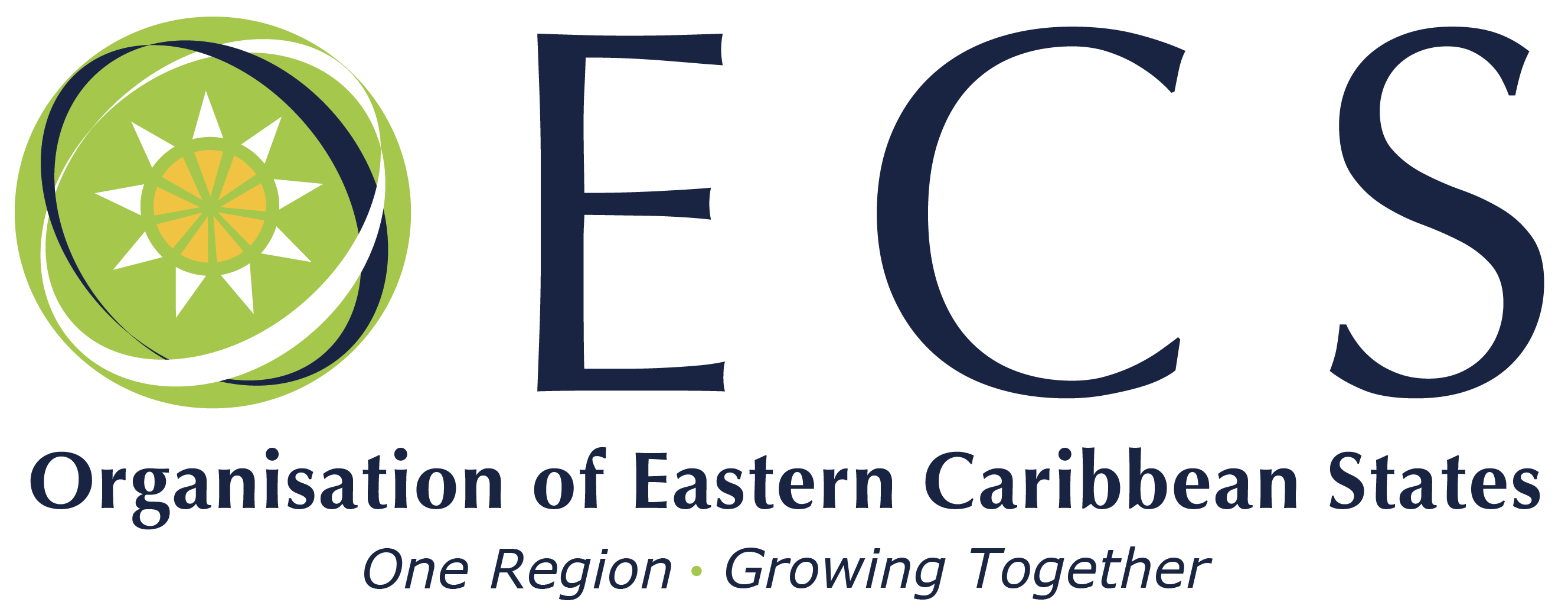Driving Digital Transformation In the Eastern Caribbean

Digital transformation in the Eastern Caribbean is still at its very early stage. Despite the strong commitment of governments and major key players of the private sector, an array of opportunities in the digital economy remains untapped.
A comprehensive adoption strategy also remains a priority to facilitate the digital empowerment of public organisations, private operators, and individuals, and to enable them to fully explore opportunities in the digital economy.
In recent years, the world witnessed key advancements in new technologies including the 5G technology, the blockchain, and the use of cryptocurrencies. New trends also emerged such as the increase in tele-education, telecommuting etc. These groundbreaking changes have deeply impacted the digital arena on the international level, leaving companies with no choice but to embrace digital transformation to allow for business continuity and remain competitive.
The Caribbean Digital Transformation Project (CARDTP) precisely aims to accelerate the digital transformation in the Eastern Caribbean by increasing access to digital services, technologies and skills by governments, businesses and individuals.
The CARDTP Project

The Caribbean Digital Transformation Project (CARDTP) is a US$ 94 million project funded by the World Bank. The main objective of the project is to accelerate digital transformation by increasing access to digital services, technologies and skills by governments, businesses and individuals in the participating Eastern Caribbean countries namely: the Commonwealth of Dominica, Grenada, Saint Lucia and Saint Vincent and the Grenadines.
The CARDTP Project is coordinated by the organisation of Eastern Caribbean States, in partnership with the World Bank, the Eastern Caribbean Telecommunications Authority (ECTEL), the Eastern Caribbean Central Bank (ECCB), The Caribbean Community Implementation Agency for Crime and Security (CARICOM IMPACS) and the Caribbean Telecommunications Union (CTU).
The Caribbean Digital Transformation Project was launched in November 2020 and should be completed by 2025
Beneficiary Countries:
The Caribbean Digital Transformation Project is currently being implemented in the Commonwealth of Dominica, Grenada, Saint Lucia and Saint Vincent and the Grenadines. Eastern Caribbean Currency Union composed of Anguilla, Antigua and Barbuda, Commonwealth Dominica, Grenada, Montserrat, Saint Kitts and Nevis, Saint Lucia and Saint Vincent and the Grenadines will benefit from a harmonised framework.
Goals
The Caribbean Digital Transformation Project pursues one key objective which is to accelerate digital transformation by increasing access to digital services, technologies and skills by governments, businesses and individuals.
Activities
The CARDTP Project comprises three components including:
- A digital ecosystem,
- A digital infrastructure, platforms and services,
- Digital skills and entrepreneurship.
The activities below are currently being implemented as part of the Caribbean Digital Transformation Project in order to drive digital transformation in the Eastern Caribbean:
- Updating of the Payment System Act and Money Services Business Act and corresponding regulations and the creation of an oversight framework for digital financial services, with corresponding support for adoption and implementation of the harmonized regional legislation and regulations at the national level,
- Developing an overarching Payment System Strategy for the region,
- Undertaking a demand-side survey on financial literacy and inclusion to inform policy-making and monitor progress toward financial inclusion goals,
- Establishing a Quality of Service (QoS) monitoring and enforcement methodology and capacity; and a survey/assessment to identify the technical and soft skills in greatest demand in the regional and global market among digitally-enabled industries for the purpose of facilitating remote work.
Caribbean Digital Transformation Project (CARDTP)
The CARDTP Project is being implemented by the OECS along with multiple partners including the World Bank, the Eastern Caribbean Telecommunications Authority (ECTEL), the Eastern Caribbean Central Bank (ECCB), The Caribbean Community Implementation Agency for Crime and Security (CARICOM IMPACS) and the Caribbean Telecommunications Union (CTU).
Eastern Caribbean Telecommunications Authority (ECTEL)

Eastern Caribbean Telecommunications Authority (ECTEL), as the regional regulator for electronic communication, subcomponent 1.1-Telecommunications is to create a strong foundation for the digital economy, in particular, ensuring all citizens have access to high-speed broadband as well as having a robust and reliable broadband infrastructure for the region.
The UN Secretary General's Roadmap for the Digital Cooperation States “meaningful participation in today's digital economy requires highspeed broadband connectivity to the internet”.
The new regulatory framework will be more responsive to the society we live in today these include
- Proper and Regulative access to submarine capacity, we all live on islands in order to have robust communication with our member states there must be secure access to subsea fibre that speaks to each other not just in the country but to each member state.
- Progressive infostructure sharing, to ensure that when structures are built that they are made available for all service providers thus increasing the capacity within the country and not just at the service provider level.
- Last mile access: this includes affordable access to high-speed quality broadband, the digital transformation project.
Eastern Caribbean Central Bank (ECCB)

Eastern Caribbean Central Bank (ECCB) wants to ensure that the eastern Caribbean does not become a consumer of a digital economy but a vital contributor to it. Growth must be fostered through key elements in a digital economy: Connectivity, Skills, Digital Finance and cyber security. The opportunities of the digital economy are boundless but we must know about the risk like breaches of privacy and cyber attacks, that is why digital and data governance is critical. ECCB subcomponent 1.2: Digital Financial Services Legal and Regulatory Environment, Institutions and Capacity. This sub-component aims to spur greater innovation, investment and adoption of digital financial services across the region. It will support modernization of the policy, legal and regulatory frameworks and underlying payment infrastructure currently holding back innovators within the Eastern Caribbean Currency Union (ECCU) from rolling out new non-bank digital payment products and services and preventing merchants, and governments and individuals from more routinely utilizing digital forms of payment.
Caribbean Community Implementation Agency For Crime And Security – (CARICOM IMPACS)

Caribbean Community Implementation Agency for Crime and Security – (CARICOM IMPACS) Subcomponent 1.3: Cybersecurity, Data Protection and Privacy.
Digital Economy focuses on building the foundation of digital governance and digital economy and supports digital market integration as a driver for economic growth, job creation and improve quality delivery across the region. If we are to achieve this, cyber security is a must. The project will utilize a combination of regional and national level approaches to share knowledge, and resources and respond to shared threats. The subcomponent will also include support to develop harmonized data protection and privacy frameworks across the region to ensure a unified space for investment and deployment of data-driven services.
CARICOM IMPACS as coordinator for cyber security and cybercrime initiatives within the Caribbean region will ensure that participating member states have
- The appropriate legislation and strategies to guide their cyber security initiative
- They have the framework for the establishment of national cyber security entities such as community emergency response teams and computer security incident response teams
- The Capacity to execute and ensure the sustainability of this initiative, are initiatives that CARICOM IMPACS expects will expand to the wider CARICOM region and will complement the current initiative in the cyber security and crime arena.
Organisation Of Eastern Caribbean States (OECS) Commission

The Organisation of Eastern Caribbean States (OECS) Commission - Subcomponent 3.1: Workforce-Ready Digital Skills. Where the OECS Commission will be focusing on training for employment opportunities for digitally enable professionals. At the regional level activities will target specialise skills development and remote working placement with global firms and clients. We want to develop a digital economy to drive competition to help create an easy and less frustrating business environment which is important for us in the eastern Caribbean for business growth and economic growth.
World Bank

The world bank is the main funding agency for the Caribbean Digital Transformation Project. In the short term, it will support access to broadband and digital devices to enable remote learning and virtual continuity of operations for critical government functions and services. In the longer term, it will support social, economic, and government communications and transaction to move online and ensure that everyone is included in the digital economy - improving the resilience of individuals, business, and governments to continue to operate and interacts virtually in the wake of health, economic, or natural disruptions.
Short-Term: Financing of devices for school students to facilitate remote education; financing of high-speed broadband connectivity and access devices to facilitate remote work.
Medium-Term: Financing of point of sale devices among small and medium enterprises (SMEs) to enable acceptance of digital payments; Development of a government payment platform Digitization of social cash transfer programs; Digitization of Internal government operations through investments in government cloud infrastructure, productivity tools (e.g., digital signatures), and e-document management systems.
Long-Terms: Development of digital identification systems; Digitizing of key public services to enable contactless service delivery to citizens; Facilitating e-money through enabling environment reform; Improved affordability of broadband services through enabling environment reform; Training of individuals in digital skills and support to secure digitally enabled work opportunities; Incentivizing technology adoption among SMEs.
Caribbean Telecommunications Union (CTU)

Caribbean Telecommunications Unions (CTU) has the honoured role of adviser to the Regional Project Oversight Committee.
Resources
Access more resources on agriculture in the Eastern Caribbean via the OECS Library.
Contact
Imran Williams
Project Manager (Digitization Project)
Tel: +1 (758) 455-6374


